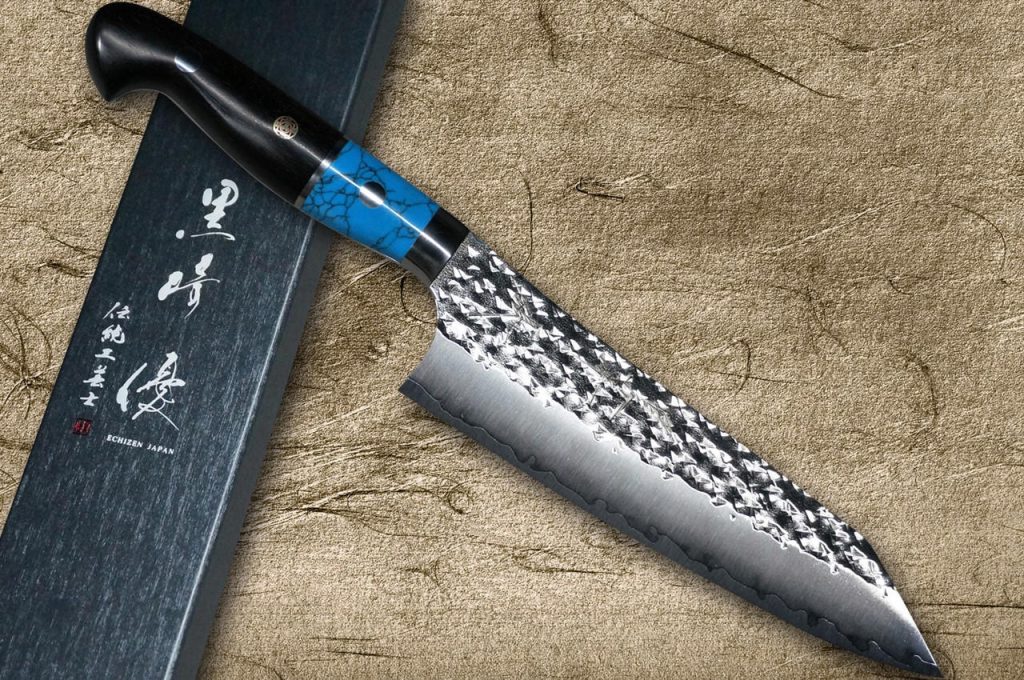img by : https://www.hocho-knife.com/
In the world of premium cutlery, few names command as much respect as Yu Kurosaki. A master blacksmith hailing from the historic city of Echizen in Japan, Kurosaki is renowned for his exquisite knife-making skills, particularly in crafting Santoku knives. His creations are not just tools but works of art, embodying the perfect fusion of traditional techniques and modern innovation.
The Blade
Yu Kurosaki’s Santoku knives are distinguished by their exceptional blades. Crafted from high-quality steel, these blades undergo a meticulous forging process. Kurosaki often uses VG10 or SG2 steel, known for its superior edge retention and corrosion resistance. The blades are hardened to an ideal Rockwell hardness, ensuring a sharp edge that lasts. What sets them apart is Kurosaki’s signature hammering techniques, such as the Tsuchime finish, which not only creates a stunning pattern on the blade but also reduces food sticking during slicing.
Design and Ergonomics
The design of Yu Kurosaki’s Santoku knives is a testament to his attention to detail. The knives typically feature a unique and aesthetically pleasing Damascus or hammered pattern, making each piece distinct. The balance between the blade and the handle is meticulously calibrated, offering exceptional control and reducing hand fatigue. The handles are often made from high-quality woods like rosewood or ebony, paired with a buffalo horn ferrule, providing both durability and comfort.
Versatility
The Santoku, meaning ‘three virtues’ in Japanese, is designed for slicing, dicing, and mincing. Yu Kurosaki’s Santoku knives exemplify this versatility. The blade’s geometry, coupled with its sharp edge, allows for precise cuts, making it ideal for handling vegetables, fish, and meat with equal ease.
Craftsmanship and Tradition
Each Yu Kurosaki Santoku knife is a reflection of the artisan’s dedication to the craft. Kurosaki infuses traditional Japanese blacksmithing methods with his innovative approaches, resulting in knives that are both timeless and avant-garde. His commitment to excellence is evident in every knife, which is handcrafted with meticulous care.
Conclusion
Yu Kurosaki’s Santoku knives are more than just kitchen tools; they are a testament to the art of Japanese knife-making. For chefs and cooking enthusiasts alike, owning a Kurosaki Santoku means experiencing the pinnacle of cutting performance and aesthetic beauty. As each knife passes from the hands of the master to the user, it carries with it a legacy of craftsmanship and a promise of culinary excellence.
